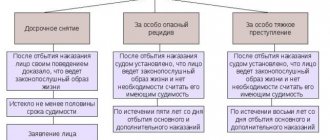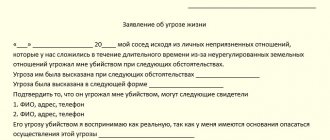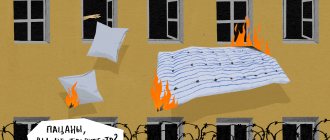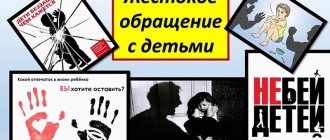The original article was taken from the website Clerk.ru
To understand the problem posed, it is necessary, first of all, to pay attention to the legal acts that guarantee persons released from prison the right to live in the premises in which they lived until the moment of actual conviction to actual imprisonment.
Currently, Russian courts, when considering this category of cases, are guided by the Resolution of the Constitutional Court of the Russian Federation of June 23, 1995 No. 8-P “In the case of checking the constitutionality of part one and paragraph 8 of part two of Article 60 of the Housing Code of the RSFSR in connection with the request of the Murom City People's court of the Vladimir region and complaints from citizens E.R. Taknova, E.A. Ogloblina, A.N. Vashchuk."
The Constitutional Court of the Russian Federation ruled (clause 1) that the temporary absence of a citizen (tenant of residential premises or members of his family), including in connection with a conviction to imprisonment, in itself cannot serve as a basis for deprivation of the right to use residential premises.
However, it should be noted that this Resolution came into force from the moment of its proclamation and does not have retroactive effect, as was directly stated in it.
Consequently, the question arises: “Were there any guarantees for the preservation of residential premises for persons sentenced to actual imprisonment before the entry into force of the said Resolution?”
The Housing Code of the RSFSR, valid until March 1, 2005, in part 1 of Article 60 established that residential premises are retained by a temporarily absent tenant or members of his family for six months. After this period, these persons could be recognized as having lost the right to use residential premises in court (Article 61 of the RSFSR Housing Code). Clause 8 of Part 2 of Article 60 established that residential premises were reserved for temporarily absent citizens in the event of a sentence of imprisonment for a term of more than six months, exile or deportation - until the sentence was carried out. This category of persons did not fall under Article 61 of the RSFSR Housing Code.
In our opinion, in order to better understand the logic of court decisions made in specific cases, it is advisable to simulate certain life situations in which people find themselves after being released from prison.
What assistance should social security provide to those released from prison?
Article-by-article scientific and practical commentary (edited by A.S. Mikhlin, V.I. Seliverstov).
— Agency “Library of the Russian Newspaper”, 2004.
2. Commentary on the Criminal Executive Code of the Russian Federation (under general.
ed. S.V. Stepashina) - M. “Yurist”, 2001. However, Article 180 of the same Penal Code of the Russian Federation establishes the responsibilities of the administrations of places of serving sentences to prepare persons released from these places for their release:
- Article 180 of the Penal Code of the Russian Federation. Responsibilities of the administration of penitentiary institutions to assist in the employment and living arrangements of released convicts and to apply medical measures to them
Educational work is carried out with the convicted person in order to prepare him for release, and his rights and obligations are explained to the convicted person. - documents about his work activity.
Is financial assistance provided to persons released from prison?
I have a house that is not residential. I just got released, I have nowhere to live, what should I do?
There may be some kind of financial assistance. However, Article 180 of the same Penal Code of the Russian Federation establishes the responsibilities of the administrations of places of serving sentences to prepare persons released from these places for their release:
- Article 180 of the Penal Code of the Russian Federation. Responsibilities of the administration of penitentiary institutions to assist in the employment and living arrangements of released convicts and to apply medical measures to them
2. Educational work is carried out with the convicted person in order to prepare him for release, and his rights and obligations are explained to the convicted person. Article 181. Providing assistance to convicts released from serving their sentences 3.
This is important to know: Payment from maternity capital to low-income families
The provision of food, clothing, the issuance of a one-time cash benefit, as well as payment for the travel of released convicts are carried out by the administration of the institution executing the sentence.
❶ Set yourself the goal of settling down in freedom at any cost
According to statistics, more than half of people who have served their sentences cannot cope with the difficulties of life after prison, slide downhill and end up back in prison.
Almost all re-convicts cite the following reasons for their return to prison: ► Difficulty of social adaptation
The more time a person spends in the zone, the more difficult it is for him to adapt to normal living conditions in the wild. The liberated person is cut off from society, freedom frightens him with its obscurity and uncertainty, society is biased.
► Lack of livelihood
Many of those who have just been released from prison do not have a roof over their heads, are deprived of the support of family and friends, and do not know where to go. Freed workers often try to solve problems with employment alone, in a hurry, and give up after the first few refusals. Having no means of subsistence and having lost all hope that everything will soon be settled, most former prisoners relapse and return back to the usual conditions of isolation...
► Lack of labor skills
Despite official assurances about the possibility of prisoners acquiring a “peaceful profession” in prison, in many Russian colonies there is not enough work for everyone, and a significant part of the inmates are forced to idle. Accordingly, these prisoners do not receive any professional skills. And if they are released directly from the zone, bypassing the colony-settlement, then they find themselves completely unprepared for working life.
► Lack of moral support
It happens that relatives and close friends turn away from people who have committed a crime. After prison, a person finds himself completely alone, with a million problems piled up.
► Label of an ex-prisoner
No one in the wild is waiting for those freed with open arms. Society places a “stigma” on those who have served their sentences and categorically does not want to accept them into its circles. Therefore, those who have been released must be prepared at the first stage to stoically endure all manifestations of misunderstanding, condemnation and injustice from others.










